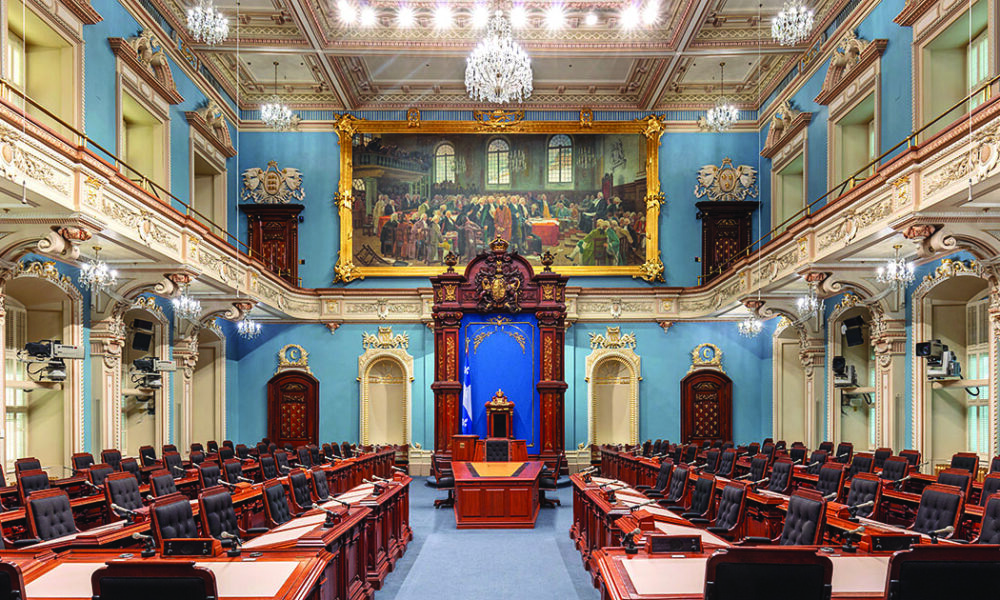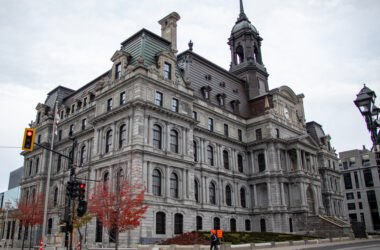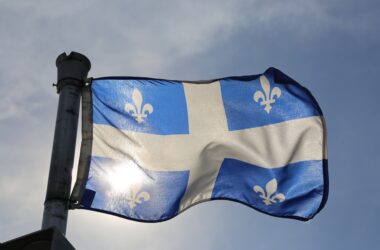Content Warning: mentions of residential schools, racism, and abuse
Ahead of Quebec provincial elections on Oct. 3, The McGill Tribune looked into each major political party’s stance on the issues of Quebec nationalism and Indigenous relations.
Pressing Indigenous issues in Quebec today
In June 2021, the National Assembly of Quebec passed Bill 79, which allows Indigenous families to access information held by public institutions and religious congregations regarding the circumstances of a child’s disappearance or death. Indigenous leaders from the Cree Nation, among others, are asking the Quebec government to revise the Bill’s scope to include disappearances and deaths from residential schools and to investigate unmarked graves across the province.
Joyce’s Principle—a list of proposals devised by the Atikamekw Nation to improve medical care for Indigenous people—was developed after footage of a Quebec hospital’s mistreatment of Joyce Echaquan went viral following the Atikamekw woman’s death. In 2020, the Liberal Party of Quebec introduced a motion to adopt Joyce’s Principle, but the Coalition Avenir Québec majority government rejected the motion due to its use of the term “systemic racism.”
Quebec’s separatism movement and battle for sovereignty, explained
Many Quebecers believe their national identity entitles them to self-determination from the rest of Canada. There have been many sovereignty referendums in Quebec—the last one having been called in 1995—but none were successful. According to experts, separatism is no longer at the forefront of the province’s politics, even though Quebec’s major parties still have widely publicized views on the matter.
Coalition Avenir Québec (CAQ)
The CAQ denies the existence of systemic racism in Quebec and claims that Indigenous communities’ experiences of racism are isolated occurrences. During the last provincial election campaign, Legault promised to implement the United Nations Declaration on the Rights of Indigenous Peoples (UNDRIP), a proclamation affirming the collective and individual rights of Indigenous nations around the world. The CAQ has yet to deliver on this promise.
The CAQ is a nationalist party. While Legault is opposed to a sovereignty referendum, the party wants Quebec’s provincial office to have more powers compared to its federal counterpart, and has pledged to advocate for Quebec as a nation.
Liberal Party of Quebec (PLQ)
The PLQ, led by Dominique Anglade, brought the 2021 motion to adopt Joyce’s Principle to the National Assembly. If elected with a majority, the PLQ would adopt the Principle and the UNDRIP. The PLQ has also promised to launch a public inquiry into residential schools in Quebec.
The PLQ is a federalist party, meaning it supports the Canadian confederation and the division of power between the provincial and federal levels of government.
Conservative Party of Quebec (PCQ)
The PCQ has not issued any policy proposals for tackling Indigenous issues.
The PCQ, led by Éric Duhaime, is a federalist party. Duhaime has promised that he will not hold a referendum on sovereignty if elected as Premier.
Québec solidaire (QS)
QS supports implementing Joyce’s Principle and the UNDRIP. The party plans to provide Indigenous communities with more public services, and to reform the justice system to better serve Indigenous people. QS also pledged to excavate all former residential school sites and to launch coroner inquiries with support from Indigenous leaders. Gabriel Nadeau-Dubois, QS’s spokesperson, has been vocal in condemning the CAQ’s refusal to acknowledge systemic racism—but has faced backlash for saying the N-word during a Sept. 15 debate.
QS is a separatist party and has promised to hold a sovereignty referendum as its first order in office, if elected majority.
Parti Québécois (PQ)
PQ’s platform does not include any policies for addressing Indigenous issues.
PQ is a separatist party and would hold a referendum for independence if the party wins a majority government.
Those in need of support can reach out to the Montreal Indigenous Community Network by email at [email protected] or by phone at 438-992-4589. A 24-hour helpline for residential school survivors and their families is available at 1-866-925-4419.









